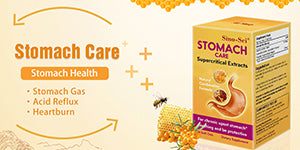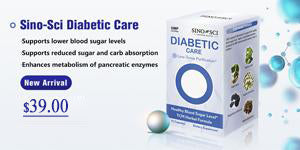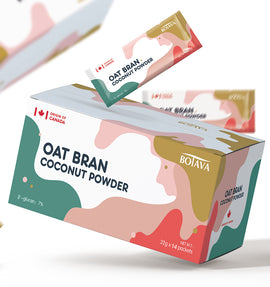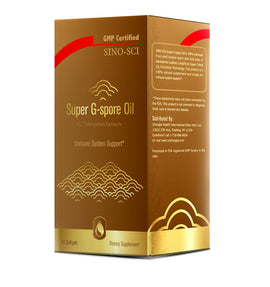Sino-Sci Vessel-Clean Capsule
Sino-sci combines traditional Chinese medicine and high-tech extraction. Five raw materials are planted in GAP local cultivation base, and then extracted by international leading CO2 Supercritical extraction technology and purifying, drying in cool temperature.
[Main Ingredient] Chitin, Lumbrukinase, Salvia, Astragalus membranaceus,Notoginseng
[Suitable for] people concerned with blood fat
[Dosage] 2 capsules, twice a day(severe);
2 capsules, once a day (Health care)
[Shelf Life] 24 months
[Storage] keep in a cool and dry place
[Specification] 0.4g×72 caps/box
*These Statements have not been evaluated by the FDA. This product is not intended to diagnose, treat, cure or prevent any disease.
Introduction to Cardiovascular
The cardiovascular system can be thought of as the transport system of the body. This system has three major components: the heart, the blood vessels and the blood. The heart, located in the middle of the chest between the two lungs, is to pump blood around the body. Blood vessels are tubes carrying blood: the veins carry blood back to the heart from the body, and the arteries carry blood out of the heart to the body. Microscopic blood vessels called capillaries connect arteries and veins together, and the heart has a few main blood vessels connecting different chambers.
Reference:
https://healthengine.com.au/info/cardiovascular-system-heart
Cardiovascular diseases are the leading causes of death in the U.S. There are different types of cardiovascular diseases with various causes.
Arrhythmia - abnormal heart rhythms that can bring on an uneven heartbeat or a heartbeat that is either too slow or too fast.
Aorta disease - Aorta is the large artery that leaves your heart and brings oxygen-rich blood to the rest of your body, and can widen or tear, which raises the chance of atherosclerosis (hardened arteries), high blood pressure, connective tissue disorders and injury.
Cardiomyopathy - some people have heart muscle disease and their hearts are unusually big, thick or stiff. Their hearts can’t pump blood as well as they should. Without treatment, cardiomyopathy can lead to heart failure and abnormal heart rhythms.
Coronary artery disease - is the narrowing or blockage of the coronary arteries. Also known as atherosclerosis.
Heart failure - it means your heart doesn’t pump as strongly as it should.
Reference:
https://www.webmd.com/heart-disease/guide/diseases-cardiovascular
Coronary heart disease (CHD): CHD can cause angina, which may be felt as squeezing, pressure, burning, aching and tightening across the chest. CHD can also lead to shortness of breath. If the heart does not receive enough oxygen, any form of exertion can become very tiring.
Stroke: When the heart isn’t working effectively, blood clots are more likely to form in the blood vessels. A stroke occurs when one of these clots lodges in a blood vessel in the brain and cuts off blood flow. If a person doesn’t seek treatment quickly enough, many brain cells may die in the important areas of the brain that control speech, strength, memory, and more.
Peripheral artery disease (PAD): The same narrowing that occurs in coronary artery disease can happen in the arteries that supply blood to the arms and legs. The major symptom of PAD is severe leg pain when walking.
Cardiac arrest: Cardiac arrest occurs when the heart suddenly stops beating. It’s usually caused by an electrical disturbance in the heart. Arrhythmia caused by heart disease can lead to cardiac arrest. This will lead to death if not treated immediately.
Reference:
https://www.medicalnewstoday.com/articles/184130#symptoms
1. “I’m too young to worry about heart diseases.”
As early as childhood and adolescence, plaques can start accumulating in the arteries and later lead to clogged arteries. Even young and middle-aged people can develop heart problems – especially now that obesity, type II diabetes and other risk factors are becoming more common at a younger age.
2. “I’d know if I had high blood pressure because there would be warning signs.”
High blood pressure is called the “silent killer” because you may never experience symptoms. The way to know if you have high blood pressure is to check your numbers with a simple blood pressure test.
3. “I’ll know when I’m having a heart attack because I’ll have chest pain.”
Not necessarily. A heart attack may cause subtle symptoms. These include shortness of breath, nausea, feeling lightheaded, and pain or discomfort in one or both arms, the jaw, neck or back. Even if you’re not sure it’s a heart attack or not, call 911 immediately.
4. “Diabetes won’t threaten my heart as long as I take my medication.”
Treating diabetes can help reduce your risk for or delay the development of cardiovascular diseases. But even when blood sugar levels are under control, you’re still at increased risk for heart disease and stroke.
5. “Heart disease runs in my family, so there’s nothing I can do to prevent it.”
Although people with a family history of heart disease are at higher risk, you can take steps to dramatically reduce your risk. Create an action plan to keep your heart healthy by eating better, controlling cholesterol, blood pressure and blood sugar, maintaining healthy weight, and stop smoking.
6. “I don’t need to have my blood cholesterol checked until I’m middle-aged.”
The American Heart Association recommends you start getting your blood cholesterol checked every 5 years starting at age 20. It’s a good idea to start having a cholesterol test even earlier if your family has a history of heart disease.
7. “I should avoid exercise after having a heart attack.”
Research shows that heart attack survivors who are regularly physically active and make other heart-healthy changes live longer than those who don’t. People with chronic conditions typically find that moderate-intensity activity is safe and beneficial. The American Heart Association recommends at least two and a half hours of moderate-intensity physical activity each week for overall cardiovascular health.
Reference:
A diet low in trans-fats and salt while high in vegetables and lean proteins is great for your heart.
Regulating your diet’s salt and unhealthy fat content reinforces your body’s ability to maintain healthy blood pressure already in the normal range. In addition to being great for your heart, a diet low in unhealthy fats and salts could be your ticket to maintaining a healthy weight.
Here’s a few things you can do. Replace salty foods with whole fruits and vegetables with lots of natural flavor. You’ll also get a lot of important nutrients—like lycopene and vitamin C—that have been shown to support a healthy cardiovascular system. And make sure the fat in your diet largely comes from plant sources—like nuts, olive, and coconut oil.
Keep your body’s engine running smoothly and get your blood pumping with exercise and a healthy diet.






































